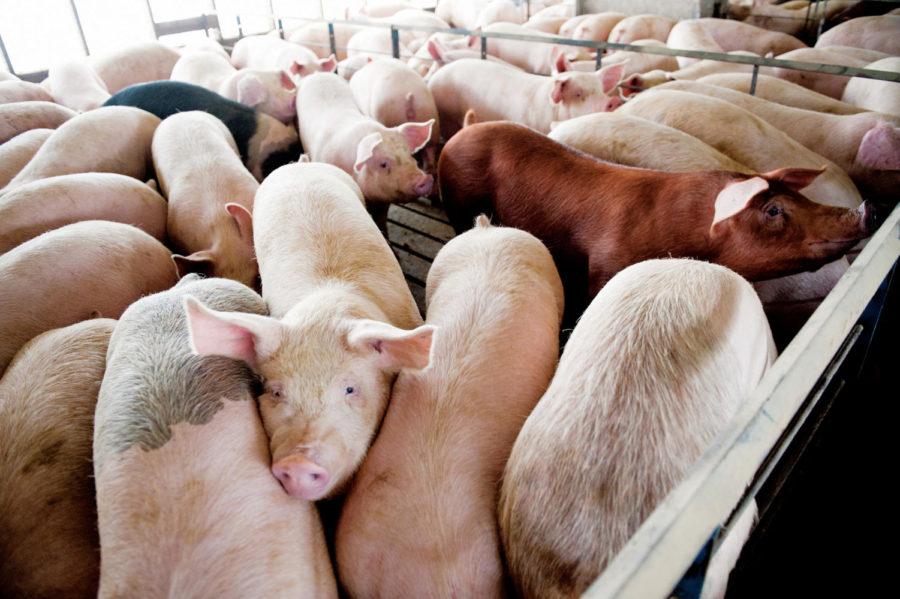McDonald’s gestation crate phase out makes a hard hit on small hog producers
Photo: Bryan Besler/Iowa State D
Finishing pigs being raised on the 450 Farm. McDonald’s is phasing out its purchases from hog suppliers that utilize gestation crates on sows.
February 22, 2012
McDonald’s made a joint announcement with The Humane Society saying that it plans to phase out the use of gestation crates starting in May. Other restaurants, such as Burger King, Wendy’s, Chipotle and Hardee’s, have also started to move away from suppliers that use gestation crates.
Although McDonald’s is not ending its relationship with suppliers who use gestation crates, farmers say it is still a hard hit on the small farmer.
“What concerns Iowa producers is if they are forced to do it, it’s a lot a money,” said David Stender, an Iowa pork industry swine field specialist from Cherokee, Iowa.
McDonald’s says it will require U.S pork suppliers to provide plans of how they will phase out the gestation crates in favor of pens.
“The challenge here in the states is that most have the individual pens and not the group housing,” said John Mabry, director of the department of animal science at Iowa State. “The expense to convert over will impact not only the small farmer, but also will drive up the price of meat.”
The Humane Society saw McDonald’s announcement as a victory in its fight to stop the use of the stalls it considers inhumane.
Stender pointed out during a phone conversation one of the reasons for the crates is protection from other sows during the first 40 days of pregnancy.
“In groups of sows, there is a pecking order and one dominant sow,” Stender said. “In the groups they can be aggressive and beat each other up, keep the other sows from the food, etc.”
The gestation crates protect the sow and protects the babies. Once a sow is confirmed pregnant they are allowed to go into pens with about 30 to 40 other sows.
“For the pigs, they are not any better off by not being in the gestation crates because they will still be in group housings,” Mabry said. “Many studies have shown that both individual and group housing are good housing practices.”
Smithfield Foods Inc. and Hormel Foods Corp. have said they would stop gestation crate use at company-owned farms by 2017. Cargill Inc. said it has already changed to group housing for pregnant sows.
“What this will do to the pork industry is raise the price of meat,” Mabry said.
Mabry said the reason why McDonald’s is doing this is because they do not want protestors outside of their fast food locations.
“This is not a random event. This is part of animal rights and other society’s agenda to get people to stop eating meat. They can’t get people to just do that so they take nibbles at a time. This is one of those nibbles.”
McDonald’s said it is seeking reports from all its suppliers by May on what is being done by producers to end the use of gestation crates. After a review, the chain will decide how to continue the phase out.







